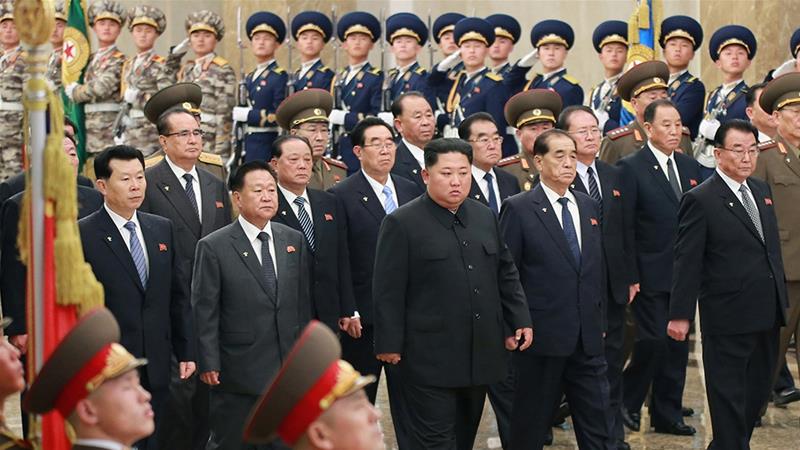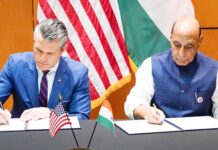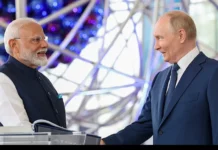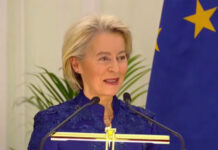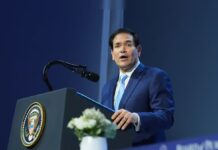BEIJING: China on Tuesday urged the UN Security Council to unanimously back its joint proposal with Russia to ease sanctions on North Korea, warning that dialogue to resolve nuclear tensions must not regress.
The nuclear-armed North has issued increasingly strident declarations in recent weeks, even promising an ominous “Christmas gift” if Washington does not come up with some concessions. For his part, US President Donald Trump said Monday that he would be “disappointed” if North Korea had “something in the works,” warning that if it did, “we’ll take care of it.” “We’re watching it very closely,” Trump said at the White House.
Negotiations between Washington and Pyongyang have been largely stalled since the collapse of a February summit in Hanoi between Trump and North Korean leader Kim Jong Un. The North is under heavy US and United Nations sanctions over its nuclear program, but it has been frustrated at the lack of relief after it declared a moratorium on nuclear and intercontinental ballistic missile (ICBM) tests.
“It is an important and sensitive period for the peninsula, and the urgency of a political solution has further increased,” Chinese foreign ministry spokesman Geng Shuang said at a regular press briefing in Beijing. The international community should “prevent the peninsula from falling back into tense confrontation, and avoid a serious reversal of the situation,” Geng added.
Russia and China introduced a draft joint resolution at the United Nations on Monday seeking to lift some of the punitive measures that have been enforced on Pyongyang over its nuclear activities.
“We hope that the Security Council will unanimously support the political settlement of the Peninsula issue” and encourage Washington and Pyongyang to “respect each other’s concerns,” Geng said.
He said “contact should be restored as soon as possible to break the deadlock and to prevent the dialogue process from derailing or even regressing.” While Beijing is Pyongyang’s most important diplomatic ally and key economic lifeline, it has backed sanctions against its neighbour in the wake of its nuclear activities.
The draft text, obtained by AFP, said the Council “shall adjust the sanction measures towards the DPRK as may be needed in light of the DPRK’s compliance with relevant UN Security Council resolutions.”
It also underlined the necessity of having “the most favorable approach towards requests for exemptions from existing UN sanctions against the DPRK for humanitarian and livelihood purposes.” The Russian and Chinese proposal did not detail exactly what North Korea will have to do in exchange for an easing of sanctions.
But in order to improve the lives of people in the impoverished North, the text called for an end to several significant measures which date from 2016 and 2017. Russia and China want the UN to end the ban on its members importing coal, iron, iron ore and textiles from North Korea.
They also call for an end to sanctions, imposed in 2017, that require UN members to send back by December 22 North Korean workers employed abroad. Those workers are an important source of revenue for the regime. The Russia-China text also calls for inter-Korean rail and road cooperation projects to be exempt from existing UN sanctions.
Three pages of annexes to the draft resolution list products to be removed from sanctions lists. Among them are bulldozers, small tractors, small metal items including scissors, bicycles, as well as washing machines for clothes and dishes.
China and Russia, which had cautiously backed pressure against North Korea after its past nuclear tests, had indicated last week they would reject further sanctions. The text “welcomes the continuation of the dialogue between the United States and the DPRK at all levels.” The draft text calls for “prompt resumption of the six-party talks” which involved China, the two Koreas, the US, Russia and Japan. Those talks lasted from 2003-2009.
Diplomats said no deadline was put forward for putting to a vote the text, which faces an uncertain future.
Texts related to North Korea are traditionally the purview of the United States, which wants Pyongyang to give up its atomic arsenal right away. (AFP)

